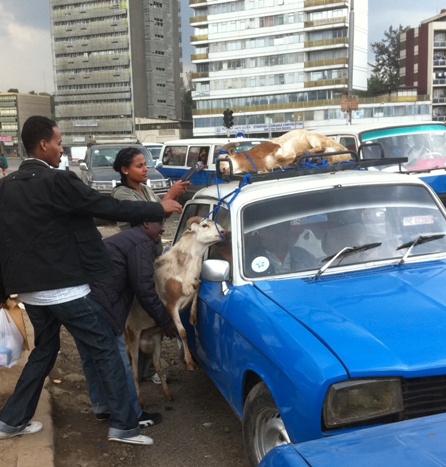|
|
 |
 |
|
|
New Year day is, of course, among the most popular holidays in the Ethiopian calendar. Perhaps, Timqet in Gondar and Mesqel in Gurageland and possibly Fasika everywhere else in the country command more respect than this important day. The end of the long rainy season, the covering of the highlands with a carpet of daisy flowers, the songs of kids, and a promise of a new beginning always make this day a special day. Even when a quintal of Teff cost as much as 800-900 Birr, a skinny chicken goes for 75 Birr, and a 'weTeTe' sheep and goat cost 1000 Birr, every household in the country seems determined to keep the festivities going. But as people who have lived through three consecutive regimes love to say, the intensity of the festivities seem to be going down every year. Perhaps, it is an indication of how our collective 'Happiness Index' is faring these days. As the PM said a few weeks ago in one controversial meeting in New York, this index is of course 'an interesting concept'. But it looks like it could define us as a people better than any index these days. The Photo Essay team went bar hopping in Addis to gauge the mood. The days when half of the city was on the street with people dressed in their finest whitest of white 'hager bahil libs' seem to have gone. There are no more proud and garceful old people strolling on Churchil or Bole Medhane Alem road with fine Afro hair-dos. The days of a night of music and dance at the National Theatre with new songs specially composed for the New Year day seems to have been repalced by tired parties at Hilton, the Inter-Continental and Sheraton where entrance ticket is 2000 Birr and more. Even neighborhood kids don't bother getting up and singing 'Abebayehosh' and collect money. Where have those days gone? It was only when the Photo Team drove to the outskirts of Addis, that we saw remnants of the old and colorful ways of the past. Little village girls still wake up early in the morning and put on their brightest and newest dresses and collect fresh cut 'qeTema'. They go from house to house singing the old and time-tested 'abebayehosh' that still defines what it means to be a Habesha. First Row, Left to right: Unlucky ship gets caught up in 'Made in China' rope as its new owner loads it in a taxi. Second Row, Left to right: It is freshly cut 'qeTema' and incense on a charcoal burner along with 'findisha' that we recognize as reminders of New Year day in this Bar in Bole Medahne Alem area. Little girls in bright dresses in Sululta brave the rains to sing us 'abebayehosh'. Despite the low 'Gross Happiness Index' that seems to be on people's minds these days, this rainbow seen from Mesqel Square - we hoped will be a harbinger of good and happy days in the future.
|
|





